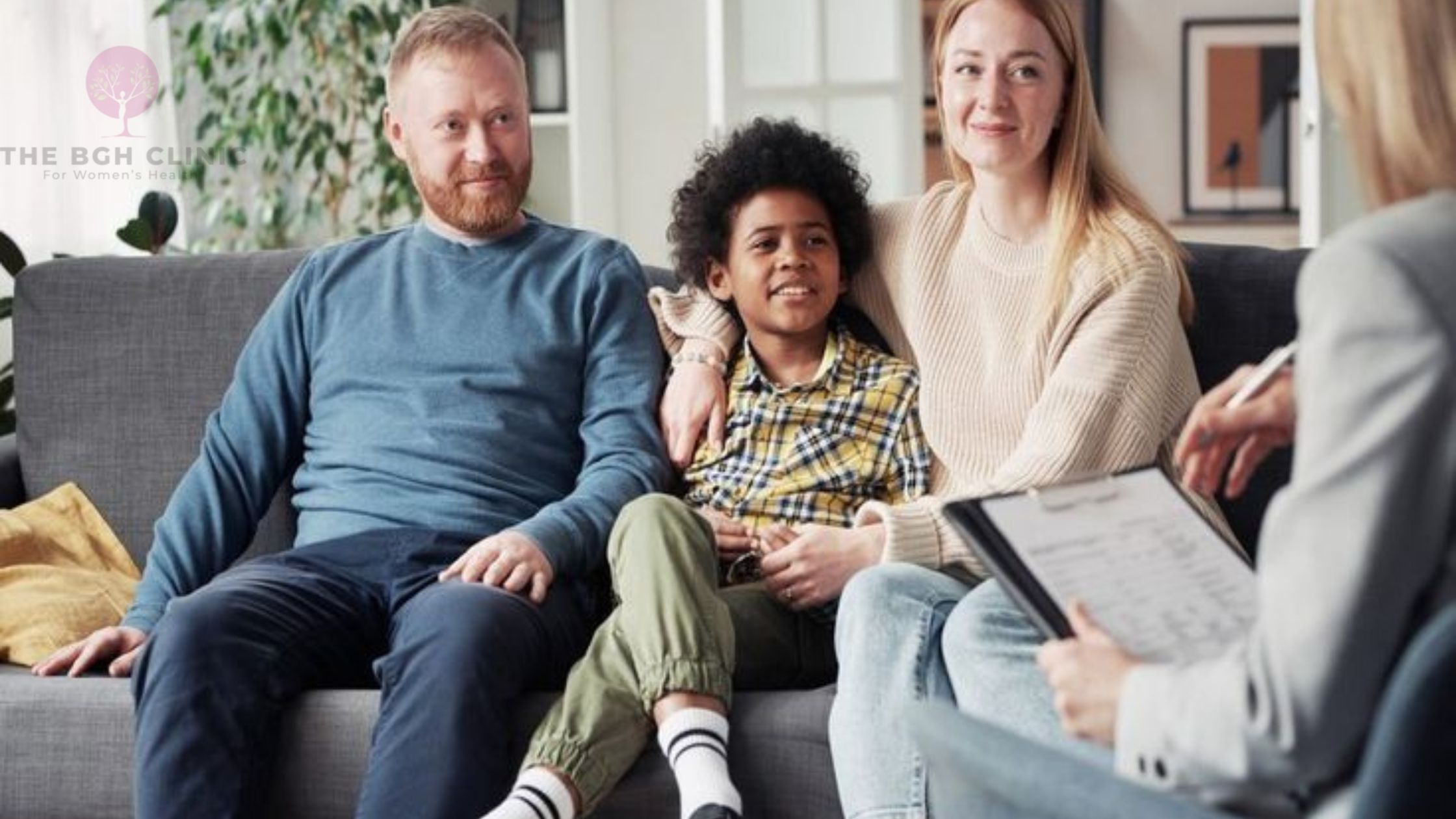Visiting a personal psychologist may prove to be life-changing, especially if your goal is to better your relationship and enhance your self-esteem. The personal psychologist will provide a conducive, confidential environment where one is free to explore his or her thoughts, emotions, and behaviors. Customized therapy equips you with ways through which to understand yourself for better relationships.
Whether it involves troubles in relationships concerning communication, low self-esteem, or simply seeking to feel better about your life, insights from a personal psychologist are just what will help. Therapy teaches one to make positive ways of coping, reframing negative self-talk into positive ones, and how to become confident with yourself. Once the roots of such problems are comprehended, changes can be allowed to set in for lasting happiness and fulfillment.
Our staff at The BGH Clinic consists of licensed therapists dedicated to equipping women with the knowledge and confidence to enhance their mental health and build stronger, supportive relationships. In our individual therapy sessions, we collaborate to enable you to attain clarity in life, overcome any obstacles, and reach your goals.
If you are ready to invest in yourself and your relationships, feel free to contact a personal psychologist at The BGH Clinic. We will be glad to help you make that first step toward an increasingly bright future.
Key Takeaways
- We will develop an individualized approach to your needs so that you can work through challenging situations and build more constructive ways of dealing.
- From individual counseling to family therapy, everything is provided; hence, whatever situation one finds themselves in, a solution will be found.
- We process therapy as something more than a problem-solving approach; this is all about self-discovery and growth.
Personal Psychologist: An Overview

When life gets too overwhelming, that personal psychologist can make a difference. A personal psychologist is defined as a mental health professional who practices one-to-one therapy to assist the individual to work through personal issues. Whatever the nature of the problem faced-depression, anxiety, or trauma, or whatever relationship issues one is experiencing-the personal psychologist can provide the advice and support needed.
Personal psychologists create a safe, confidential environment within which one can be themselves. They offer different modalities to provide insights into your feelings, how you have patterned your behaviors, and ways of coping with life’s pressures to improve your mental well-being.
One of the main advantages of working with a personal psychologist is the individual approach to treatment. Unlike group therapy, one-on-one sessions can be tailored to your unique experiences and needs. Your psychologist will work closely with you to set goals, track progress, and help you implement positive changes in your life.
If you consider psychotherapy, then the search for a personal psychologist can become your first step towards recovery. Here at The BGH Clinic, we treat all cases of females in a special and personalized way: to give girls/women confidence to make decisions on how they go through challenges of life.
How Personal Psychologists Help in Strengthening Relationships
A personal psychologist doesn’t just help you focus on yourself but also guides one in building stronger, healthier relationships with other people. Whether it’s a problem in communication, emotional disconnect, or the simple betterment of the bond you have with your partner, family, or friends-a personal psychologist can help.
Effective Communication: It is through communication that any relationship works. Conflicts arise from misunderstandings, assumptions, and poor communication. A personal psychologist will be teaching you how to communicate effectively, how to listen actively, and how to express your needs without being aggressive or withdrawing.
Understanding Emotional Needs: Everyone has emotional needs, and these sometimes are not met within relationships. A psychologist helps you understand these needs and how to communicate them in a way that your loved ones can hear. Be it wanting more affection, recognition, or emotional support, a personal psychologist provides tools to help you express these needs constructively.
Conflict Resolution: Conflicts arise in any relationship. However, how you handle and solve them is very important. A personal psychologist teaches you ways of resolving conflicts amicably, hence guiding you through a disagreement without worsening the situation. You can avoid either running away from arguments or having unhealthy arguments; instead, you can learn to approach disagreements with calmness and respect.
Setting Boundaries: Setting healthy boundaries among people in a relationship is very important. A personal psychologist helps in enabling you to realize where boundaries should be drawn, whether among friends, family, or romantic partners. Learning where to set boundaries protects your well-being and ensures relationships are based on mutual respect.
Building Empathy: Empathy involves understanding and, simultaneously, sharing feelings with another. A personal psychologist can teach one to become more empathetic, thereby having deeper and more compassionate relationships.
Strengthening Self-Esteem with a Personal Psychologist
One of the most transformative benefits of working with a personal psychologist is the improvement in self-esteem. Low self-esteem can be a barrier to success in relationships and personal goals, often leading to feelings of inadequacy, self-doubt, and anxiety. A personal psychologist works with you to address these challenges by focusing on key strategies:
Challenging Negative Thoughts
Bad thoughts can steal their way into one’s mind and take complete precedence over everything else in life, thereby making one feel jammed up or unable to function. These negative feelings range from not being good enough to worries about the future. Nevertheless, negative thinking does not define who you are or what you’re capable of doing. With the proper tools at your fingertips, you can challenge such thoughts and achieve a greater feeling of being in control of one’s emotions.
It can be done through cognition by positively reframing. It means the ability to recognize the thought and question its validity upon emerging. For example, if you think, I’m not good enough, question that thought by writing your strengths and past accomplishments down. Your negative thoughts might not be that true after all.
The second one is the practice of mindfulness. As the negative thought arises, breathe in and draw yourself into the present. In this way, there will be some space between you and the thought, hence it will be easier to handle.
Building Confidence Through Action
Confidence is one of those things most women have to work at one time or another, but fortunately, it is something that can be developed. Of all the potent ways to up-size your self-confidence, action perhaps is one: the small, consistent steps toward any particular goal develop a sense of accomplishment that reinforces self-belief.
It all starts with setting achievable goals, such as waking up 15 minutes earlier to focus on self-care or facing a personal fear; the key is to start with something manageable, then gradually increase your challenges as your confidence grows.
Every little action, every little accomplishment, builds an individual’s self-esteem. For instance, if a person has anxiety or struggles with self-doubt, taking a class or engaging in a hobby can give the person a chance to feel competent. By forcing yourself out of your comfort zone, you begin to learn that you are stronger than perhaps you thought.
Self-Acceptance and Compassion
Self-acceptance means embracing who you are, all flaws included. It is an ability to realize your worthiness as you are. While practicing self-acceptance, one stops comparing himself with others and starts celebrating his journey uniquely.
Compassion-of course-is being kind to oneself, offering oneself the same amount of warmth and understanding as it is offered to one’s friends. We are always our own most unbending critics; with compassion, one can give yourself permission to make mistakes and learn from them.
Taken together, self-acceptance and self-compassion forge a solid foundation for mental well-being. Both anxiety and stress are considerably reduced, which then enables one to deal confidently with whatever life throws one’s way, thus remaining calm. Start small: acknowledge your strengths, forgive yourself for past mistakes, and treat yourself with the kindness you deserve.
Conclusion
You and your therapist will discuss the goals achieved and any continuing support you might need. A time to celebrate your progress, acknowledge your growth, and plan for the future, for many, it also serves as a reminder that healing is a lifelong process and that therapy doesn’t end, it evolves.
We ensure that every step is purposeful and empowering at The BGH Clinic for Women’s Mental Health from beginning to end. Our goal is to help you leave therapy with a sense of confidence, ready to apply the tools you’ve learned in your everyday life.
Frequently asked questions (FAQs)
What is mental health therapy?
Mental health therapy, more appropriately termed as psychotherapy or counseling, is the process of licensed therapists working with their clients to surmount emotional problems or psychological issues.
What services do you offer?
Individual therapies, group therapies, and medication management are offered. Each one of our therapies is individually focused to provide the special needs met of a person and provide an appropriate atmosphere where life’s challenges could be worked through.
How will I know if the therapies are for me?
Therapy helps when stress is overwhelming you, and you have developed anxiety and depression, the relationships aren’t working right; our qualified therapist will guide you on how to manage your feelings with coping skills towards healing.
Is my Therapy confidential?
Yes, all our therapy sessions are strictly confidential to make certain you are private and comfortable. We want to give a safe and supportive environment where you will be heard and understood.





